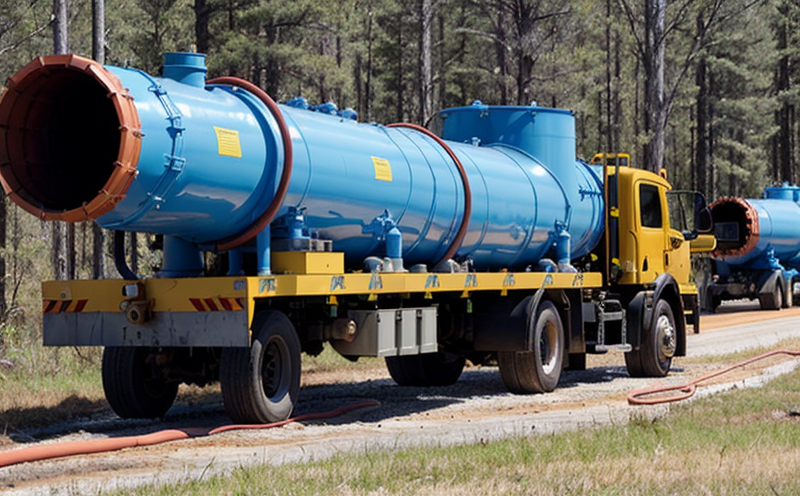ISO 13303 Odorization Testing of Natural Gas
The process of odorizing natural gas is crucial for ensuring public safety. Natural gas, inherently colorless and odorless, can be difficult to detect in the event of a leak. ISO 13303 specifies the minimum concentrations of odorants that must be added to natural gas to make it easily identifiable by humans.
At Eurolab, we provide comprehensive ISO 13303 odorization testing services for utilities and pipeline operators to ensure compliance with international standards. Our laboratory adheres strictly to these guidelines, ensuring that the odorants used are effective in real-world conditions while being safe for human health.
The primary goal of this testing is not only to meet regulatory requirements but also to enhance public safety by making natural gas detectable through its characteristic smell. This service plays a vital role in maintaining the integrity and reliability of the natural gas distribution network, thereby protecting consumers from potential hazards associated with undetectable leaks.
Our team of experts is well-versed in all aspects of ISO 13303 testing, including the selection of appropriate odorants, concentration levels, and methods for ensuring that these additives are uniformly distributed throughout the natural gas supply. We employ advanced analytical techniques to verify compliance with the specified standards, providing accurate and reliable results.
Regular monitoring and testing according to ISO 13303 are essential components of a robust safety program in the power and utilities sector. By integrating our odorization testing services into your quality management system, you can ensure that your natural gas distribution network remains safe and compliant with international best practices.
| Standard | Description |
|---|---|
| ISO 13303-1:2006 | Determination of odorant concentration in natural gas and other gaseous fuels by gas chromatography. |
| ISO 13303-2:2006 | Determination of odorant concentration in natural gas and other gaseous fuels by olfactometry. |
Applied Standards
The testing of natural gas for odorization is governed primarily by the ISO 13303 series, which provides comprehensive guidelines on how to determine and maintain an effective odorant concentration in natural gas. These standards are crucial not only for compliance but also for ensuring that the odorants used do not interfere with other gaseous components of the natural supply.
The ISO 13303 series includes specific methods for both chromatographic analysis (ISO 13303-1) and olfactometric detection (ISO 13303-2). Chromatography allows for precise measurement of odorant concentrations, while olfactory tests ensure that the gas can be reliably detected by human senses. Both methodologies are designed to provide accurate results under various conditions, ensuring consistent performance.
Our laboratory adheres rigorously to these standards, using state-of-the-art equipment and trained personnel to perform odorization testing. This commitment to accuracy and precision ensures that our clients receive reliable data that can be used to make informed decisions about their natural gas distribution systems.
Eurolab Advantages
- Experienced and certified personnel who are up-to-date with the latest ISO standards.
- Access to cutting-edge laboratory equipment capable of performing precise odorization tests.
- A quality management system that ensures consistent results across all testing processes.
- Dedicated project managers who can provide guidance and support throughout the testing process.
- Prompt turnaround times for test reports, ensuring timely compliance with regulatory requirements.
International Acceptance and Recognition
The ISO 13303 series of standards enjoys widespread international acceptance, with many countries mandating compliance as part of their natural gas safety regulations. This global recognition underscores the importance of accurate odorization testing in ensuring public safety.
- USA: The American Gas Association (AGA) recommends ISO 13303 for odorant concentration determination.
- Canada: Natural Resources Canada supports ISO standards, including those related to natural gas distribution systems.
- EU: European Union directives and recommendations align with ISO 13303 guidelines for odorization testing.
- Australia: The Australian Gas Association references ISO 13303 in its best practice documents.
The consistent adoption of these standards across different regions highlights their relevance and applicability to a wide range of natural gas distribution networks. By choosing Eurolab for your odorization testing needs, you can ensure that your operations meet the highest international standards, enhancing both compliance and safety.





